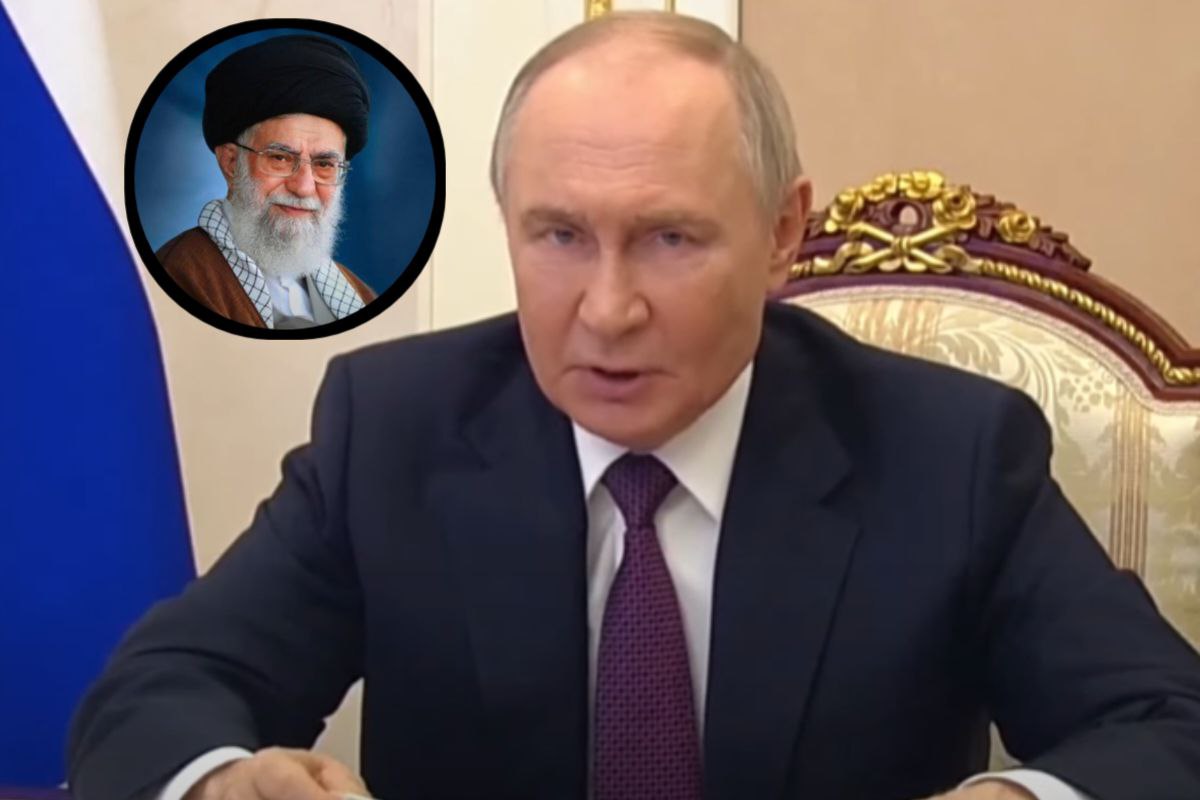Russian President Putin Warns Israel and the US:Tensions escalate as Russia issues a strong warning to the U.S. and Israel against assassinating Iranian Supreme Leader Ayatollah Khamenei. President Putin refuses to even discuss such a possibility, while Kremlin spokesman Dmitry Peskov warns of extremely negative consequences. The Kremlin also cautions that any U.S. tactical nuclear strike on Iran would be catastrophic. Meanwhile, U.S. President Donald Trump acknowledges knowing Khamenei’s location but states there are no plans to take him out “for now,” while warning Iran to cease attacks on civilians and American forces. The situation underscores the growing risk of a major conflict in the Middle East.
Russian President Putin Warns Israel and the US
The ongoing tensions in the Middle East have taken a sharp turn as Russia issued a stern warning to both Israel and the United States, cautioning them against any attempt to assassinate Iran’s Supreme Leader Ayatollah Ali Khamenei. This warning comes amidst escalating hostilities between Iran, Israel, and Western allies, with fears mounting that any such drastic action could push the region into uncontrollable conflict.
During a recent press conference, Russian President Vladimir Putin was directly asked by a reporter: “If Israel, with or without U.S. support, assassinates Khamenei tomorrow, what would be your reaction and Russia’s response?” Putin chose his words carefully and delivered a chilling message. “I hope this answer suffices for your question — I don’t even want to discuss such a possibility.” According to Reuters, Putin refused to speculate on the consequences of a potential assassination and instead highlighted that such threats only serve to strengthen the unity of the Iranian people around their current leadership in Tehran.
The Kremlin did not stop there. In a separate statement, Putin’s spokesman Dmitry Peskov amplified the warning, stating: “Russia will respond extremely negatively if Khamenei is eliminated.” This strong language indicates that Moscow views any attempt to eliminate Iran’s top leadership as an unacceptable provocation that could trigger severe repercussions, potentially extending beyond the immediate region.
Adding further weight to the Russian stance, the Kremlin issued an alarming nuclear warning directed at the United States. Russian officials cautioned that any tactical nuclear strike on Iran would be “catastrophic,” not only for the Middle East but for global stability as well. This rare mention of nuclear retaliation underlines just how seriously Moscow is taking the situation and its determination to deter any such extreme actions.
Amid these developments, U.S. President Donald Trump also addressed the topic publicly, offering his own blunt assessment. “We know exactly where the so-called ‘Supreme Leader’ is hiding. He is an easy target, but is safe there – we are not going to take him out, at least not for now,” Trump declared. However, he did not shy away from issuing a direct threat, adding, “We don’t want missiles shot at civilians, or American soldiers. Our patience is wearing thin.” The U.S. president’s statement underscored growing American frustration with Iran’s recent military moves while also signaling that Washington’s tolerance may soon reach its limits unless Tehran de-escalates.
These sharp exchanges come at a time when Iran’s regional activities, particularly its support for proxy forces, missile launches, and alleged attacks on civilian targets, have intensified. The mounting rhetoric from both sides suggests that the conflict could spiral into a much broader confrontation if not managed carefully. Russia’s public warnings reflect its deep concern over the destabilization of an already volatile Middle East and its strategic partnership with Tehran.
As the world watches these dangerous developments unfold, any potential strike against Iran’s leadership would almost certainly provoke a massive regional and international crisis, drawing in multiple powers and escalating the conflict far beyond current hostilities.
Disclaimer:
This article is based on publicly available news reports and official statements from government sources. The information provided is for informational purposes only and does not reflect any personal opinions or endorsements. Readers are encouraged to verify facts independently. The situation described is rapidly evolving, and updates may change the context or accuracy of the details mentioned.

